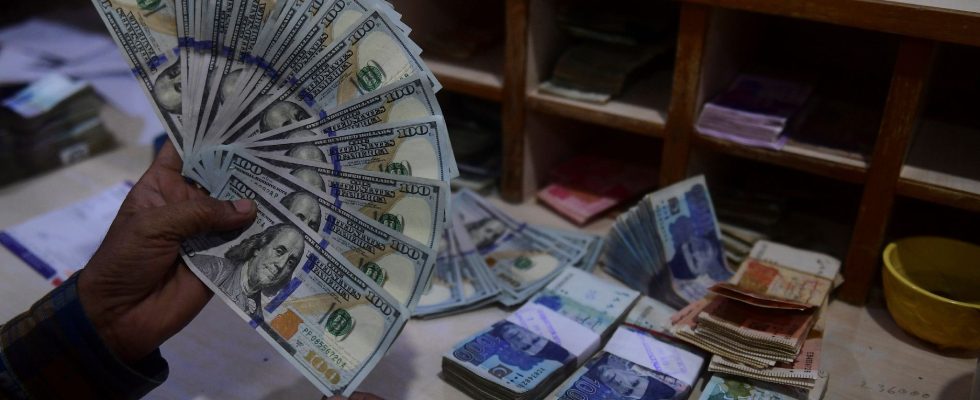Officially, the question is not on the program of the Brics summit in Johannesburg, which begins on Tuesday August 22: “There is no point on the agenda on the dedollarization of the Brics”, affirmed on August 14 last l South African ambassador within the group to the American media Bloomberg.
And yet, several members of this diplomatic alliance between Brazil, Russia, India, China and South Africa (Brics) have recently spoken out in favor of a world economy that would not depend so much on the American dollar. , used in nearly 90% of current trade, says economist Carl Grekou, monetary policy specialist at the Center for Prospective Studies and International Information (Cepii). A hegemony which influences in particular the price of imports and exports of the Brics.
Faced with the omnipresence and very strong stability of the dollar over the long term, is this a realistic objective for these five emerging giants? The Express takes stock in three questions.
Which countries want the end of the dollar?
If “all the countries of the world would like to stop trading in dollars”, says Carl Grekou, some are more audible than others: last June, during the Summit for a new global financial pact, in Paris, the Brazilian President, Lula da Silva, criticized “the predominance of the United States dollar as the currency of international trade”, recalls the South African online daily Daily Maverick.
But it is above all Russia which is the most favorable to it, specifies the economist. No longer having access to the euro and the US dollar following the economic sanctions imposed after the invasion of Ukraine in February 2022, it is forced to find other options. Moscow has also been testing a digital version of its national currency since August 15, in particular to facilitate trade with its Brics partners.
Above all, “Russia has no other choice but to get closer to China”, specifies Carl Grekou. The world’s second largest economy and great rival of the United States has been pushing for several years to trade in its own currency with other countries. Brazil, in particular, signed an agreement with China in April for their trade to be carried out in yuan and reis.
Are the alternatives to the dollar credible?
If exchanges between nations via local currencies are a possible solution, the need to trade in a stable currency should persist despite everything. For economist Carl Grekou, only two options seem more or less realistic today: replacing the dollar with the Chinese yuan or with a common currency between emerging countries.
For the yuan, “China would already have to accept it, but it would be possible if it has control over it,” he said. This is the most credible choice for the Cepii economist, because “China’s area of influence can provide most of the products that these countries want”, such as rice in Africa. Beijing is also the leading creditor of emerging countries, says Carl Grekoualready imposing a “silent dedollarization”, according to him.
Only downside: Brazil, India and South Africa may not accept having to depend entirely on one of the five members of the Brics, “especially since China has more and more economic problems”, analyzes Carl Grekou.
The second solution should be on the summit’s agenda: create a common currency between these giants, then expand it to other emerging countries. But this new barely stable currency could “be attacked on the markets” by the United States, anxious to maintain its hegemony. It would therefore be necessary to base this currency on an already fairly stable value such as… the Chinese yuan.
What role does the New Brics Development Bank play?
Rather than directly replacing the US greenback, the BRICS countries have already created, in 2015, the New Development Bank (NBD). This international establishment aims to finance the development of certain world economies by granting them loans in their local currencies. An “alternative to the International Monetary Fund (IMF)” and its dollars, explains the American daily wall street journal.
“The bank is also considering borrowing in local currencies, and the various Brics countries are starting to trade in each other’s currencies,” the South African ambassador told the Daily Maverick.
The project, however, has some lead in the wing: after the invasion of Ukraine, and although the NDB stopped all loans to Moscow, “Wall Street quickly became suspicious of lending to a bank held nearly 20% by Russia”, says the wall street journal. Ironically, the bank must now borrow in dollars to pay its debts.
